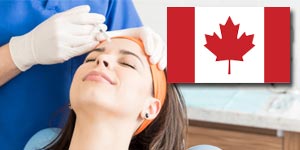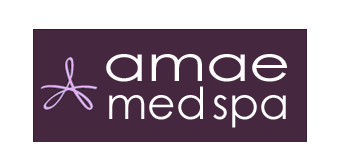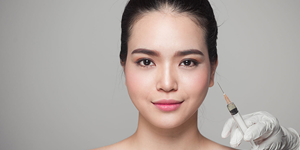 https://birminghammedspa.com/wp-content/uploads/2023/09/botox-windsor-on.jpg
150
300
admin
https://birminghammedspa.com/wp-content/uploads/2017/11/l-med-spa-2.png
admin2023-09-28 04:38:122023-10-03 21:57:47Why Canadians Are Flocking from Windsor to the US for Botox
https://birminghammedspa.com/wp-content/uploads/2023/09/botox-windsor-on.jpg
150
300
admin
https://birminghammedspa.com/wp-content/uploads/2017/11/l-med-spa-2.png
admin2023-09-28 04:38:122023-10-03 21:57:47Why Canadians Are Flocking from Windsor to the US for BotoxMED SPA BLOG
Thank you for visiting the AMAE Med Spa Blog, where we keep you updated on the latest day spa news and events.
Check back often to read about the latest techniques and state-of-the-art technologies in anti-aging, skincare and body rejuvenation.
RELATED ARTICLES
Why Black Patients Are Getting More Botox
Black Americans have traditionally comprised a very small percentage of Botox users – for a number of different reasons. But this is now changing, and individuals with dark skin are now beginning to embrace Botox injections.
The American Society of Plastic Surgery reported that 80% of Botox users were Caucasian in 2020 while only 4% of Botox injections were administered to Black patients – representing a very small percentage of total Botox users.
Unfortunately, not a lot of research has been done on Botox (and other cosmetic treatments) specifically as they affect Blacks and other patients with darker skin tones. At AMAE we pride ourselves on offering the best, most-advanced anti-aging treatments for patients of all skin colors. In this article we explore some of the reasons for low Botox use in Black men and women – and look at whether Botox is a useful and appropriate skin rejuvenation of patients of color.
Why So Few African Americans Get Botox
Aging in people of color looks a little different – and the toll of time is often considered to affect men and women with pigmented skin more gently. This is because the extra melanin in darker skin causes photo-aging to occur more slowly – so wrinkles develop later. In other words, the pigment in melanin protects the skin from skin damage from everyday exposure to the skin’s harmful rays.
In fact, many Black patients are blessed with skin that doesn’t manifest with wrinkles at all, and they don’t really have forehead lines like many caucasians do. And since Botox was originally developed to treat forehead lines, it has traditionally not been a widely used treatment in the Black community.
An August 2021 article in NewYork magazine also explored the Black community’s cultural perception of Botox use. One of the women interviewed stated that her family “has that old-school mentality” with many thinking that Botox “is things people of other races and ethnicities do to look like we do and age like we do.” She continued that she “was also worried about the judgment I would receive when I shared that I was getting Botox.”
Similarly, Allure Magazine recently interview Black dermatologist Corey L. Hartman, age 46, the founder and medical director of Skin Wellness Dermatology in Birmingham, Alabama. He stated that growing up in a Black household in New Orleans, his aunts told him that “Black people don’t go to the dermatologist” because they are “blessed with good genes.”
Another Black woman – Chloe – interviewed by Allure expressed the opinion that “There is an unfair expectation that Black women have to be effortlessly perfect because there’s just this idea that if it’s not natural, then it’s not valid.”
Botox Use Increasing Among Black Patients
However, the few articles that have recently been written on the subject – including the Allure and NewYork Magazine piece – suggest that Black Americans are letting go of the cultural stigma behind ‘getting work done’ including Botox injections.
Dr. Hartman reported that he has seen a dramatic increase in the interest in Botox and other injectables among his Black and brown patients. In that Allure article he stated that Botox “has become a topic that is now socially acceptable across the board. Now you have [people] bringing their girlfriends in and having events at doctors’ offices or Botox parties. Generation X and the baby boomers look at this as something corrective and the millennials and Gen Z are looking at this as self-care, preventive medicine.”
Botox Treats More than Forehead Lines
The reality is that while black skin is protected from wrinkles by increased melanin levels, pigment does not stop the collagen loss that is experienced by virtually all ethnicities.
At roughly age 22, a person’s collagen levels peak – and then every year after that, they lose 1 percent of their collagen. And this dwindling collagen results in significant volume loss in the face – regardless of skin color or ethnicity. And sagging skin can contribute to the appearance of “elevens” between the eyes as well as crow’s feet around the eyes.
Botox, is an injectable that can be used to relax the facial muscles in order to minimize these lines and wrinkles – in skin of any color. An October 2020 article in Essence Magazine interviewed Black dermatologist Dr. Carlos Charles who stated that “Many people believe that injectables are not suited for African-American skin for various reasons,” but “wrinkles and facial volume loss do not discriminate… These changes can occur with aging across all ethnicities and skin colors.
The Essence article went on to conclude that when cosmetic treatments such as Botox are performed correctly, they can lead to natural enhancement and minimize potentially unwanted signs of aging in Black patients.
Botox for Black Americans & People of Color | Detroit Area
Despite advances in technology, and changes in cultural perception of Black Botox, many cosmetic surgeons and aestheticians still do not understand how to treat Black and brown skin. However, renowned Detroit area plastic surgeon Dr. Ali has been successfully treating people of color for decades. In fact, Dr. Ali is of middle eastern decent himself and his own skin is brown.
Botox can be administered to the forehead, between the eyebrows and around the eyes or crow’s feet to help women and men of color look younger and achieve smoother facial skin, as well as reduce wrinkles along the chin and nose. Renowned Detroit cosmetic surgeon Dr. Ali also commonly administers facial fillers in the cheeks, nasolabial folds (smile or puppet lines), temples and under the eyes in patients of color.
If you are a Black person or POC in the Detroit area you can trust your antiaging and skin rejuvenating treatments to Dr. Ali. He will take the time to assess your unique skin, and administer the best, safest treatments for dark skin – for more refreshed, beautiful and youthful you!










